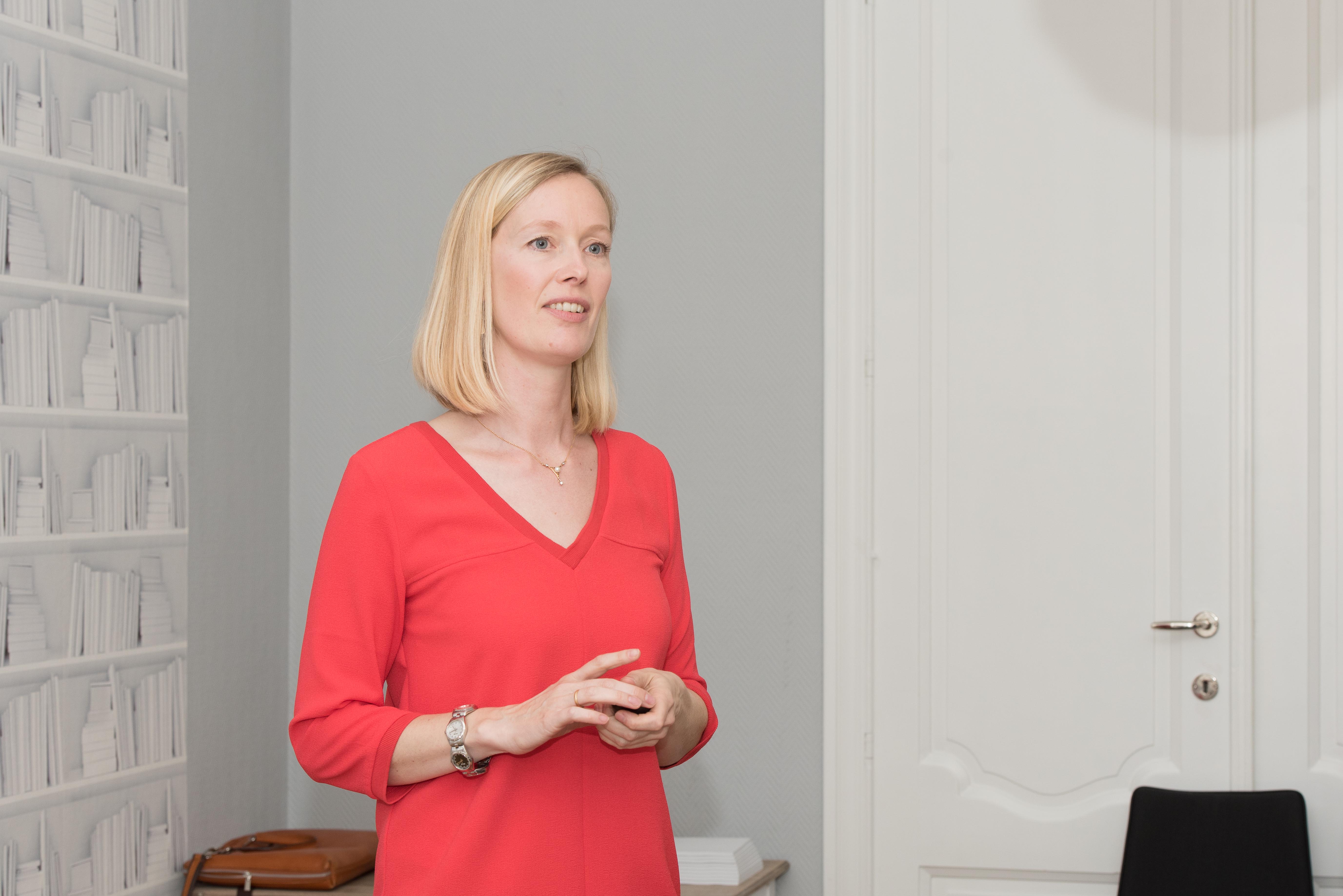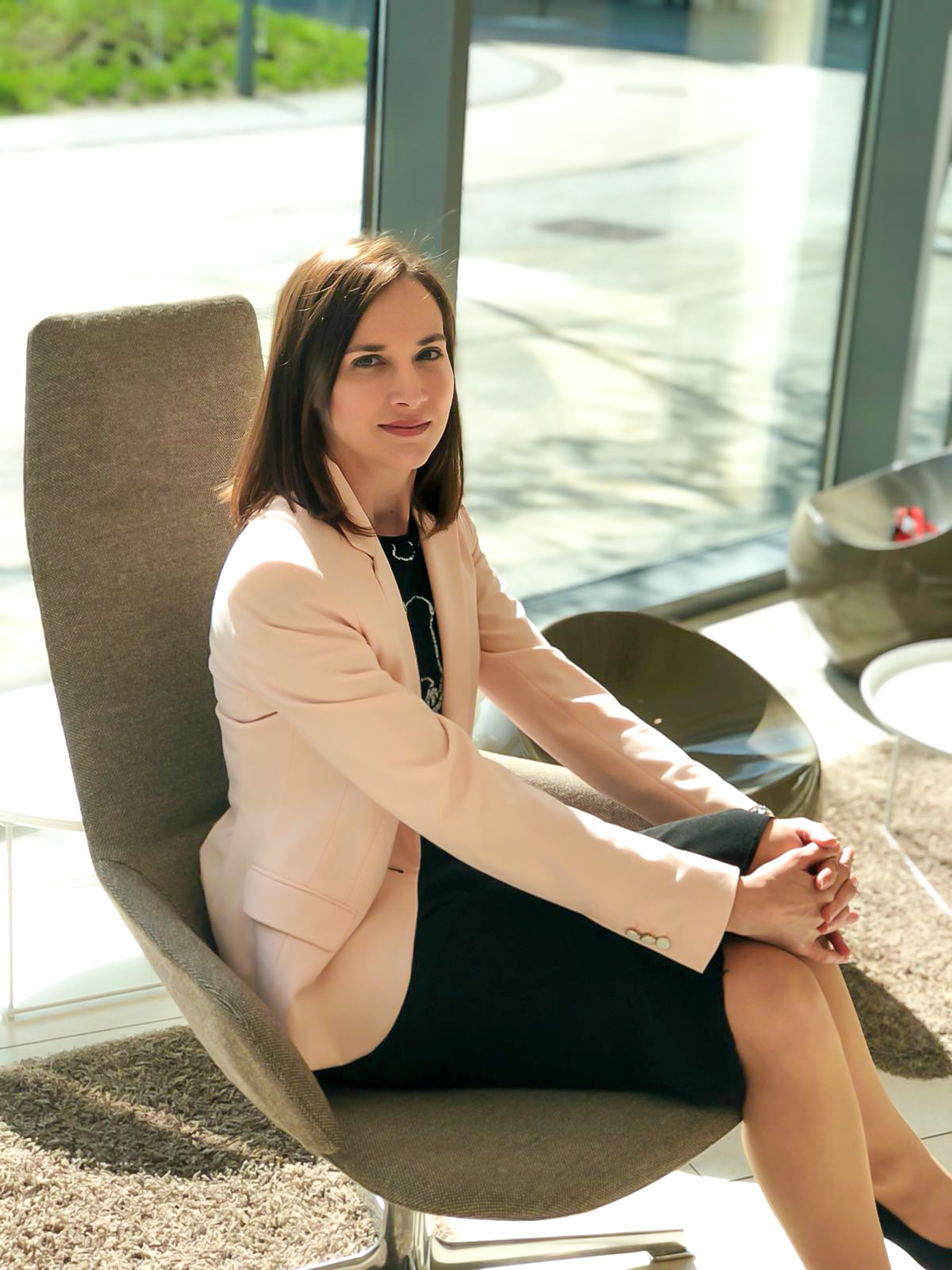- Daily & Weekly newsletters
- Buy & download The Bulletin
- Comment on our articles
Finding your voice: How to improve your public speaking skills in Brussels
Public speaking strikes fear into the hearts of many people, and yet there are ever more occasions when we are asked – or told – we have to stand up and address an audience. It might be at work, or a social occasion, or in connection with a class or voluntary work. And most people will admit that, once they finish speaking and sit down, the buzz is incredible. There are several options if you want to reduce the pain and increase the pleasure of public speaking, from courses and workshops, to clubs and theatre groups.
One-to-one
Elizabeth Van Den Bergh is a trainer who helps busy, ambitious professionals speak with more confidence and impact. She gives individual coaching to senior managers and chief executives, leads training sessions for companies and runs a workshop on public speaking for women.

“For me public speaking is linked to leadership, but it is definitely not just about one-way communication,” she says. “It’s also about dialogue and how you interact with other people.” She begins her individual training by exploring the situations in which a person will be speaking and the message they want to deliver. “Sometimes they want to inspire, sometimes to inform. It can also be trying to sell something, or to entertain.”
But it’s just as important for the speaker to find out about themselves. “What is happening in your mind determines how you speak, your body posture and so on. Finding out what is holding you back is a big part of the work.” Another important step is learning how to make the audience your ally. “When you stand on stage, the first thing you need to do is make a connection. Once you have that connection you will feel much more at ease.” Techniques for doing this include beginning with a question to the audience or talking to people in the audience beforehand and bringing their views into your talk.
Van Den Bergh’s intensive individual training might involve just two half-day sessions, the first on confidence and attitudes to public speaking, the second on preparation and delivery. But it could also mean five full days, exploring these issues more deeply and with more time to practise. “I’m often surprised by how quickly you can help someone and make them look at public speaking differently, but it’s only the beginning,” she says. “They have to start applying it and improving step by step.”
One common source of anxiety in Brussels is speaking in a second or third language. “I tell people not to worry and just to be themselves,” she says. “With all the instruments we have to connect with people – our voice, our message, our personality – if we use all of those properly, language does not matter so much.” Indeed, non-native speakers often speak more purposefully and carefully.
Raise a toast
A more informal and social way of developing your public speaking is through the Toastmasters Club. This international network provides a structure for improvement and a setting where you can practise and get feedback. Zsuzsanna Corridori joined the Brussels branch after reading about the network online. “I really like self-development and courses, and Toastmasters is an affordable way of improving communication skills,” she says. “I also like that it’s self-paced: you can attend as often as you like.”

The structure in Toastmasters comes from manuals, which are accessible online. When a new member joins, they choose a path that fits their needs. They start by mastering the basics of public speaking, like vocal variety or how to use visual aids, then move on to more advanced assignments such as how to manage a difficult audience. Members work on these assignments at meetings, which for the Brussels Toastmasters Club are held twice a month in a restaurant.
“Everybody who comes along wants to improve, whatever level they start on,” Corridori explains. “Some people have experience in public speaking, feel more confident and want to participate right from the start. Other people want to watch first.”
A meeting starts with impromptu speeches, where people talk for one or two minutes about a topic they are given on the spot. These can be straightforward, such as where you are going on holiday, or more surreal: imagine you are a panda hugger – describe your typical day. After this there are prepared speeches, lasting five to seven minutes, where the topic is down to the individual.
An evaluator gives each speaker feedback, bearing in mind the assignment they are working on. This highlights what they did well and gives points for improvement. Other participants time the speech, count the use of ‘ah’, ‘um’ and other filler words, and look out for grammatical slips. This is handy for people who also want to improve a second, third or fourth language.
There is currently a waiting list to join the Brussels Toastmasters Club, which works only in English, but there are places in the bilingual clubs, which combine English and Dutch, French, German, Italian, Spanish, Irish or Romanian.
Stage fright
A more ‘dramatic’ way to improve your pubic speaking skills is through improvisational theatre – improv for short – an approach to performing in which everything is made up on the spot. “If you are confident enough to get up and do something that’s not prepared, imagine how confident you will be doing something that is prepared,” says Kelly Agathos, founder of the ImproBubble improv school in Brussels.

Improv is built on a set of principles and guidelines that help nurture the creative process. “These are designed to bring you into a state of mind where you are able to create a story on stage without a script, and look to the audience like a quick-witted genius,” Agathos says. “It’s all about teamwork, acute concentration, being open to whatever comes your way and not being thrown by something you weren’t expecting.”
For example, when one performer makes a suggestion, it’s important that the other players both accept it and add an idea of their own to move the story on. The answer to any suggestion should be ‘Yes, and...’. Improvisers also learn how to quickly read and pick up on the verbal and non-verbal cues given by their partners to support them and make them look good on stage. Building trust is important, as is a positive attitude to failure. Agathos: “Things will go wrong when you’re creating something from scratch: take that as a given and embrace the places the ‘mistakes’ will take you. Often, they end up being wonderful gifts that inspire us to take the story somewhere new.”
In addition to building confidence, improv can help public speaking by emphasising the connection with the audience. “Your audience is not here to see you fail,” Agathos says. “They want you to do well, just like our audiences want us to do well and give them an entertaining night out.”
And however much you prepare, you may also need to improvise as a public speaker. “You will be able to deal with unexpected things in other areas of your life a lot better if you are used to unexpected things coming from your partners on stage.”
Brussels now has a vibrant improvisation scene, from which ImproBubble emerged. “We have monthly masterclasses with visiting improvisers and a weekly beginner’s course starting again in September,” Agathos says. “People can also come to our shows and find out more from our current students, many of whom once had a fear of public speaking.”
This article first appeared in ING Expat Time









